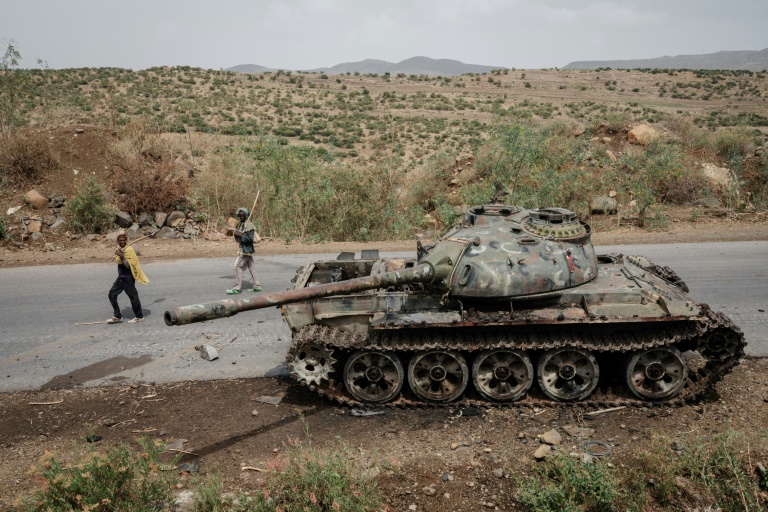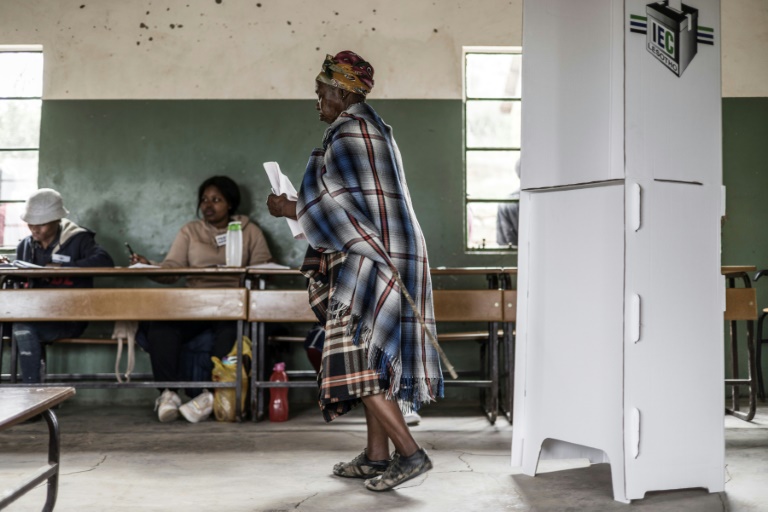Haulier Aziz falters as he describes how jihadists attacked a convoy of lorries laden with food for a starving town in northern Burkina Faso on September 26, events which contributed to the country’s latest coup.
Aziz was driving his lorry carrying rice and grain near the back of the 207-vehicle convoy under military escort when gunfire broke out near Gaskinde.
The ambush, claimed by Al-Qaeda, officially killed 37 people, including 27 soldiers.
But 70 truck drivers remain missing, according to their union.
The disaster has become a symbol of the state’s inability to secure remote countryside areas and protect local people, 10 years into a bloody jihadist insurgency in the Sahel region.
Five days later, Burkina was rocked its second coup in less than nine months — the fifth in two years in the landlocked West African region.
Local people speaking to AFP described carelessness by the army charged with protecting them and their own daily challenge of survival.
The convoy had left Ouagadougou for Djibo, one of the main cities in northern Burkina, which has been subject to an 18-month blockade by jihadists.
Islamists have frequently used such methods to assert control over rural populations.
Burkinabe soldiers, sometimes assisted by French special forces, have sought to break the blockade of Djibo and stave off the famine that threatens it.
The army has been providing security for the long supply convoys, which on September 26 included dozens of extra traders and other civilians, according to Aziz.
“Our work is to help the people of Djibo — if I don’t go, if my (colleagues) don’t go, who will go to Djibo? Nobody,” said Aziz who requested his real name be withheld for security reasons.
“(People in Djibo) are suffering, that’s what gets me down. So we will go to Djibo all the same.”
– Shots rang out –
An army officer present in the convoy said that as the long line of trucks got moving, a handful of shots rang out and a landmine was discovered, which was then bypassed.
But the snaking line of vehicles was then ambushed by raiders on motorbikes, backed by machine guns fixed to pick-up trucks.
“I have never seen an attack on this scale,” the officer said.
“It lasted several hours. We tried to get the civilians out but we were overwhelmed, without air support.
“They had vastly superior firepower.”
Rabo Brahima, president of the Union of Truck Drivers of Burkina, described the onslaught as a “rout.”
“It was every man for himself,” he said.
A drone strike “prevented more people from dying”, said the soldier, though there has been no official confirmation that an unmanned air vehicle was used.
Aziz turned his lorry around to find shelter in the first village he could reach.
Another driver, at the front of the convoy, was not so lucky.
He told AFP that he spent more than four hours in the bush, saw men shot dead, and had to walk 27 kilometres (17 miles) to a nearby town.
His vehicle was torched by the attackers, along with more than 100 others in the convoy.
Videos taken by drivers and other civilian survivors show a long column of fire along the highway.
Only 70 of the 207 trucks could be saved, according to Rabo.
– ‘Slaughterhouse’ –
News of the catastrophe quickly reached the capital Ouagadougou, where a first toll suggested 11 people had died with 50 missing, before rising swiftly.
Questions about the handling of the incident swirled, with media demanding to know why a military support helicopter was reportedly turned away, fuelling a debate about perceived military failings.
Security consultant Mahamoudou Savadogo and a military source said that a number of soldiers had objected to the convoy setting off in the first place.
The attack was “the straw that broke the camel’s back,” Savadogo said.
Following his January coup, Lieutenant-Colonel Paul-Henri Sandaogo Damiba had promised to gain the upper hand over the jihadists.
Sending the convoy on the “highway of death” to Djibo was like “sending men to the slaughterhouse,” Savadogo said.
The country’s new leader Captain Ibrahim Traore said his coup on September 30, the second putsch in less than nine months, was partly because of worsening security.
Djibo has since been supplied by the army using helicopters, with 70 tonnes of food flown in to ease shortages.
A ceremony for soldiers killed in Gaskinde was announced in Ouagadougou for Saturday.
“We civilians, will we get help and recognition from the state?” one trucker asked bitterly.










